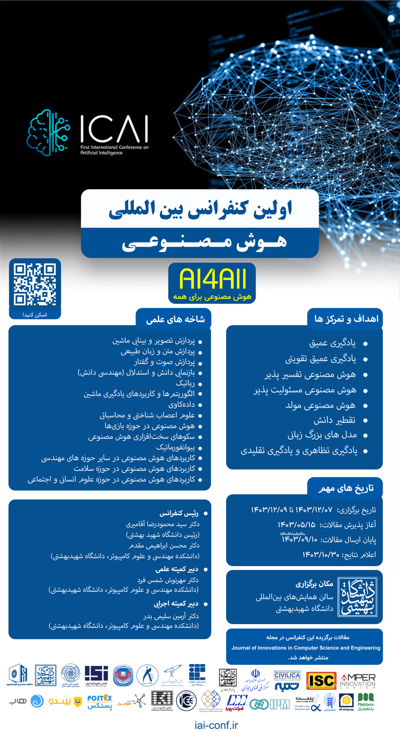0% Complete

نویسندگان :
کلمات کلیدی :
چکیده :
لیست مقالات بایگانی شده
Solmaz Norouzi - Mohammad Asghari Jafarabadi - Ebrahim Hajizadeh - Hossein Khormaei - Nasim Naderi
Rana Poureskandar - Abbas Mirzaei - Babak Nouri-Moghaddam
Morteza Nalbandi - Athena Abdi
Khadejeh Nemati - Safouro Ashoori - Moohamad hadi Amini
Seyed Mohammad Javad Toghraee - Hadi Nilforoushan - Nafiseh Sanaee
Ramin Feizi - Parham Soufizadeh - Kaveh Yazdifard
Seyyed Ali Zendehbad - Abdollah PourMottaghi - Marzieh Allami Sanjani
Zahra Lotfi foroushani
Atefe Aghaei - Mohsen Ebrahimi Moghaddam

